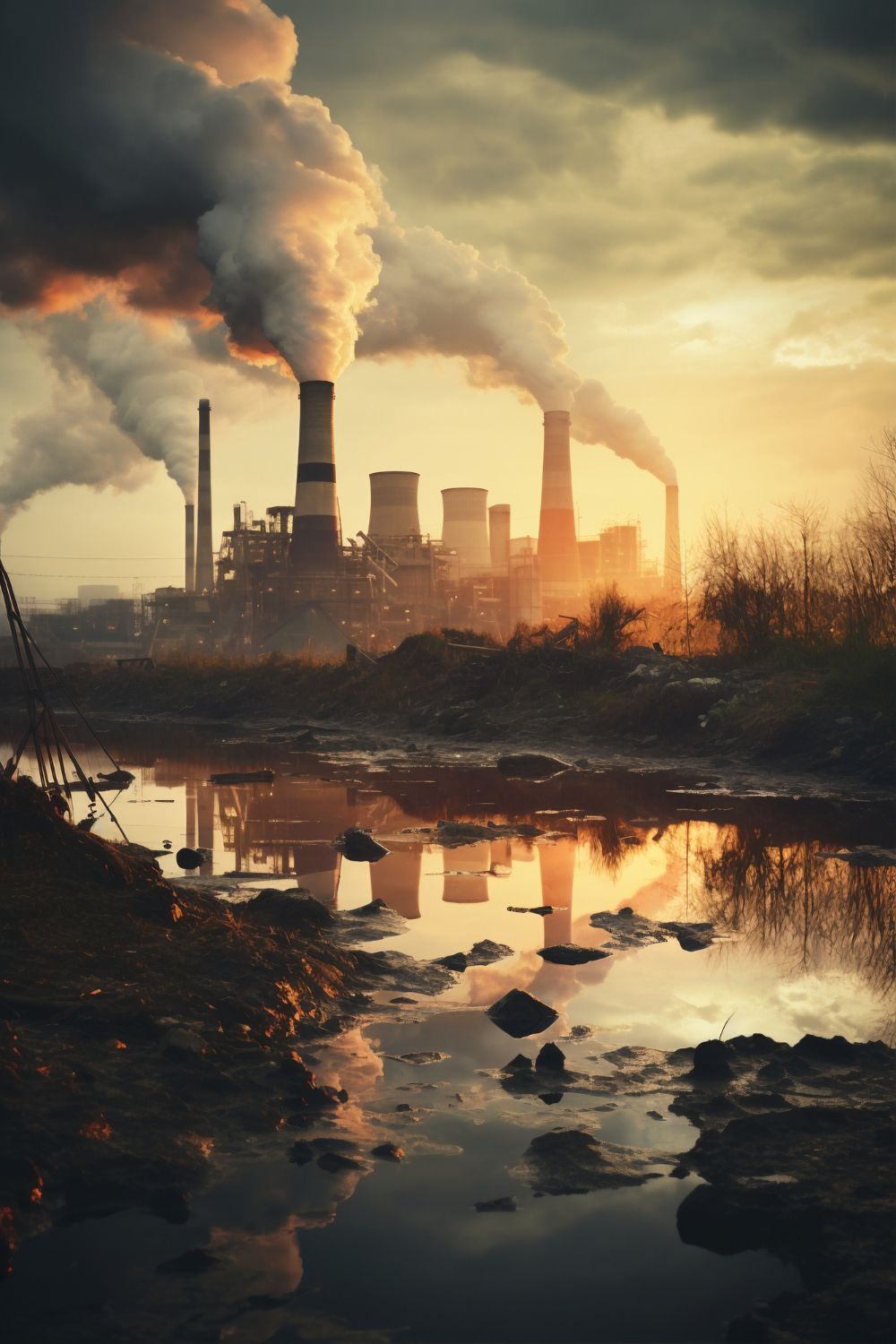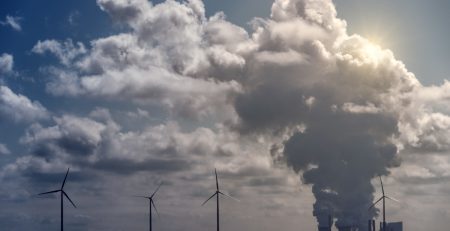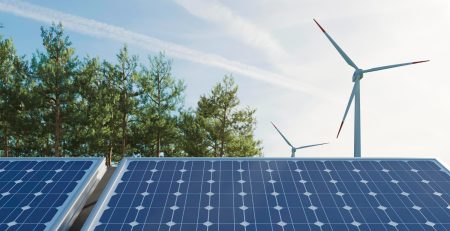How Fossil Fuels are Polluting Our Air and Harming Our Health
Coal, crude oil, and natural gas are considered fossil fuels, and they have high carbon content. Our homes, vehicles, and businesses have been powered by energy from burning fossil fuels. Even now, oil, coal, and gas serve about 80% of our energy needs, according to the U.S. Energy Information Administration.
However, our heavy dependence on fossil fuels comes at a deadly price. Using fossil fuels for energy has negatively impacted humans and the environment, from air and water pollution to global warming. When burned, fossil fuels release harmful pollutants that infiltrate our lungs, devastating our health. The pollutants released from burning fossil fuels can lead to early death, respiratory disorders, heart attacks, strokes, and asthma.
Harvard University, in collaboration with the University of Birmingham, University of Leicester, and University College London, found that more than 8 million people died in 2018 as a result of fossil fuel pollution, which is about one out of five deaths worldwide.
Pollutants Released by Fossil Fuels
Fossil fuel combustion releases a complex mixture of pollutants into the atmosphere that result in air pollution and negatively impact health. These include:
- Particulate Matter (PM): are microscopic particles suspended in the air, categorized by size (PM2.5 and PM10). PM is everything in the air that is not a gas. They comprise sulfate, nitrates, ammonia, sodium chloride, black carbon, mineral dust, and water suspended in the air we breathe. These particles lodge deep into the lungs, triggering respiratory problems, heart diseases, and even Cancer.
- Nitrogen Dioxide (NO2): this is one of the central air pollutants. It is a reactive gas contributing to smog, acid rain, and ozone formation. Exposure to NO2 can worsen asthma, irritate airways, and reduce lung function.
- Sulfur Oxides (SOx): like NOx, SOx contribute to smog and acid rain formation. They can trigger respiratory problems and aggravate existing lung conditions.
- Volatile Organic Compounds (VOCs) are diverse groups of organic chemicals released during fuel combustion and industrial processes. In addition to contributing to smog formation, they can cause eye, nose, and throat irritation.
- Ground-level ozone: formed through complex atmospheric reactions involving NOx and VOCs. It is a major component of smog and irritates the lungs, leading to coughing, wheezing, and shortness of breath.
These pollutants are not limited to a location as they travel through the atmosphere to long distances, polluting air quality even far from the emission source. This highlights the magnitude of the problem and the need for international cooperation in tackling air pollution.
Ways Fossil Fuels Pollute the Air and Harm Our Health
- Land Degradation: Detecting, processing, and moving underground oil, gas, and coal deposits has a vast impact on landscapes and ecosystems. The fossil fuel industry utilizes a vast stretch of land for infrastructure, processing, waste storage, and waste disposal. This results in the destruction of critical wildlife habitats (land) crucial for breeding and migration.
- Water Pollution: Coal, oil, and gas development threaten waterways and groundwater. Toxic runoff contaminates streams, rivers, and lakes, and large quantities of unwanted rock and soil are disposed of in streams. Oil spills and leaks during extraction and transportation can pollute drinking water sources. Fracking and toxic fluids have been found to contaminate drinking water.
All drilling, fracking, and mining operations generate large volumes of wash water containing heavy metals, radioactive materials, and other pollutants. When these contaminants and pollutants find their way into waterways, they have been linked to Cancer, neurological damage, birth effects, and more.
- Emissions: fossil fuels emit harmful air pollutants even before they are burned. In a study published in 2017 in Environmental Health Perspectives, almost 17 million Americans are exposed to toxic air pollution from active oil and gas wells. These include benzene, which has been linked to childhood leukemia and blood disorders, and formaldehyde, a cancer-causing chemical. Mining operations generate toxic airborne particulate matter.
- Burning Fossil fuels: burning coal, oil, and gas drives the current global warming crisis. Burning fossil fuels generates large quantities of carbon dioxide, which traps heat in the atmosphere and leads to climate change.
Fossil fuels don’t just emit carbon dioxide when burned. Only coal-fired power plants produce 35 percent of dangerous mercury emissions in the United States and two-thirds of U.S. sulfur dioxide emissions. This contributes to acid rain and most soot (PM) in the air.
Additionally, fossil fuel-powered cars and trucks are the primary contributors of poisonous carbon monoxide and nitrogen oxide, which produce smog on hot days and can lead to respiratory illnesses when inhaled.
- Industrial Processes: in addition to energy production, fossil fuels are used as raw materials in many industrial processes, such as manufacturing and chemical production. These processes can emit pollutants such as benzene, toluene, and formaldehyde, which are harmful to human health and contribute to air pollution.
Impact of Air Pollution from Fossil Fuel on Our Health
- Respiratory Diseases: exposure to air pollutants emissions from fossil fuels can worsen respiratory conditions like chronic bronchitis, asthma, and emphysema. Delicate particulate matter, especially, can penetrate the lungs, leading to respiratory inflammation and distress.
- Cardiovascular Diseases: air pollution has been linked to an increased risk of cardiovascular diseases, including heart attacks and strokes. The toxic components of fossil fuel emissions can penetrate the bloodstream and contribute to developing these conditions.
- Cancer: certain air pollutants from fossil fuel combustion, like benzene and formaldehyde, are known as carcinogens. Therefore, prolonged exposure to these substances increases the risk of developing different kinds of Cancer, including lung cancer.
- Neurological Effects: recent studies have also suggested that air pollution from fossil fuel may have neurological effects resulting in cognitive decline and increased risk of neurodegenerative diseases like Alzheimer’s and Parkinson’s diseases.
Impact of Air Pollution from Fossil Fuel on Our Environment
Aside from the direct effect on our health, air pollution from fossil fuels also has detrimental effects on the environment.
- Climate Change: the combustion of fossil fuels is a significant contributor to global warming, as it releases large amounts of CO2 into the atmosphere. This leads to climate change, negatively impacting the environment and our health, including more frequent and severe heat waves, extreme weather events, and rising sea levels.
- Rain Acidification: Sulfur dioxide and nitrogen oxides emitted from burning fossil fuels can react with water vapor in the atmosphere to form acid rain. Acid rain can damage forests, soil, and aquatic ecosystems, damaging animals and plants.
- Ocean Acidification: Burning oil, gas, and coal changes the ocean’s basic chemistry, making it more acidic. The seas absorb almost 25 percent of all carbon emissions, which has resulted in the ocean becoming over 30 percent more acidic. As the water’s acidity increases, calcium carbonate (a substance used by oysters, lobsters, and countless other marine organisms to form shells) decreases. This can slow growth rates, weaken shells, and imperil entire food chains.
Solutions to Air Pollution and Health Damage Caused by Fossil Fuels
Adopting renewable energy and building a clean energy future is possible in an environment free of fossil fuels. International, federal, state, and local policies must be implemented to grow the clean energy economy. State and federal incentives and a decrease in the price of sustainable energy sources will push the world toward a cleaner and safer environment.
Renewables are on track to become cheaper than fossil fuels, prompting a boom in clean energy development. Significantly integrating higher levels of renewables into our existing grid will be helpful. However, care must be taken to build renewable energy responsibly on-site.
If the right policies are implemented, there will be dramatic progress towards a clean energy future. Energy efficiency, the cleanest, cheapest energy resource, has contributed more to the nation’s needs over the decades than oil, coal, natural gas, or nuclear power. Improving energy efficiency in buildings and industry can also reduce fossil fuel consumption, decreasing air pollution.
Achieving a clean future will require sustained policy efforts from all levels of government, the private sector, and local communities. Governments can implement strict regulations on fossil fuel emissions and incentivize the adoption of cleaner energy. Awareness of fossil fuels’ health and environmental impacts should be raised to encourage individuals and communities to make more sustainable choices and support initiatives for clean energy.
Conclusion
The pollution caused by burning fossil fuels is a significant health concern that requires urgent action. By transitioning to cleaner energy sources and adopting sustainable practices, we can reduce air pollution and the adverse effects of fossil fuels on our health and the environment. Governments, industries, and individuals need to collaborate and address this pressing issue and pave the way for a healthier and more sustainable future.
References
Fossil Fuels: The Dirty Facts. https://www.nrdc.org/stories/fossil-fuels-dirty-facts
News – Tagged “fossil fuels” – Digital Habitats. https://digitalhabitats.global/blogs/news/tagged/fossil-fuels
Why Are Fossil Fuels Bad & What Are the Alternatives?. https://www.ecofriendlyhabits.com/why-are-fossil-fuels-bad/
What Are Volatile Organic Compounds, and How Do They Affect Humans? – Norden Lasik. https://www.nordenlasik.com/volatile-organic-compounds-and-how-do-they-affect-humans/










